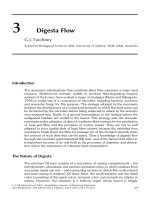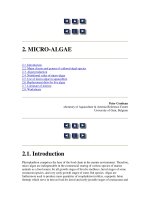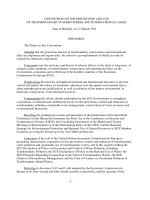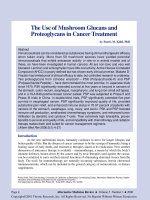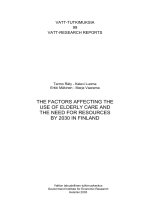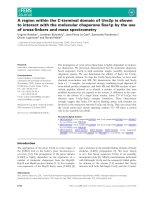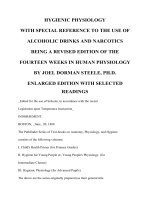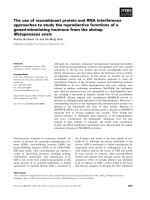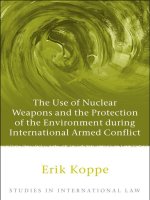Use of certain longer and shorter alternatives 2
Bạn đang xem bản rút gọn của tài liệu. Xem và tải ngay bản đầy đủ của tài liệu tại đây (12.85 KB, 1 trang )
Use of certain longer and shorter alternatives
Many longer expressions have shorter alternatives. Examples are given below:
Plenty of / a lot of / a great deal of = many / much
A long way / a long way off = far / far off
The longer forms are generally used in the affirmative; the shorter forms are used in the negative and questions.
I have a lot of work to do. (More natural than I have much work to do.)
Do you have much work to do? (More natural than Do you have a lot of work to do.)
There isn’t much food in the house. (More natural than There isn’t plenty of food in the house.)
Were there many people at the meeting? (More natural than Were there a lot of people at the meeting.)
Plenty of students want to study abroad.
Are there many students who want to study abroad?
Yes, but there aren’t many students who can afford it. (You can’t say: ‘There aren’t plenty of students
who can afford it.)
The airport is a long way off. (More natural than The airport is far off.)
Is the airport far off? (NOT Is the airport a long way off?)
No, the airport isn’t far off.
Notes
Many and far are occasionally used in affirmative sentences. The longer forms may be occasionally used in
questions, but are almost never used in negative sentences.
Exercise
Make the following sentences negative.
1. They have done a great deal of research on the subject.
2. A lot of money has been spent on the project.
3. Beijing is a long way from here.
Answers
1. They haven’t done much research on the subject.
2. Not much money has been spent on the project.
3. Beijing isn’t far from here.
Stay on top of your writing! Download our grammar guide from www.englishgrammar.org to stay up-to-date.
Powered by TCPDF (www.tcpdf.org)
